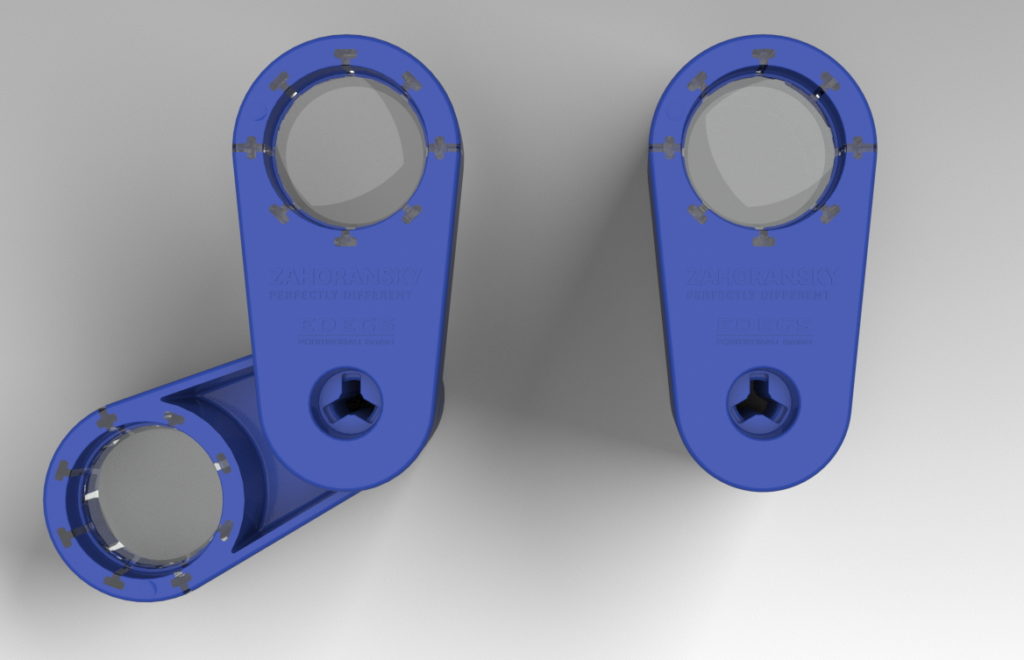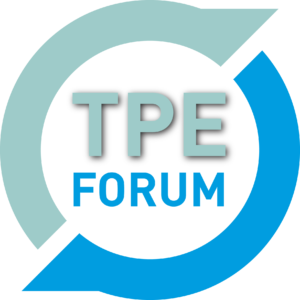At K 2019, the Zahoransky business unit Oral Care presents an innovative application for the production of toothbrushes: A laser unit makes it possible to add custom inscriptions to the soft and hard components of toothbrushes immediately before packaging. Kraiburg TPE supplied the thermoplastic elastomers, and Merck the additives for this project. A second demonstration at the stand at K 2019 is the new multicomponent mould which is used to produce a PBT/LSR part.
Customizing toothbrushes shortly before packaging
With a look to both production processes and design Michael Soukup, Head of Product Sales Oral Care, describes the two innovative elements in the laser inscribing of toothbrushes: “On the one hand, our new laser unit enables companies to customize their toothbrushes shortly before packaging. The second benefit lies in new design freedoms, only made possible by this laser unit: Pixels as small as 0.025 mm can be inscribed into the soft toothbrush components, for permanent inscription of detailed logos, graphics, and images.” The inscription takes place shortly before packaging, which massively cuts the time it takes to deliver an order. Producers need no longer wait with production until the order arrives, but can rather use stored, neutral models. The inscription process itself takes less than a second per toothbrush. In contrast with other processes, such as pad printing, this system is thus already economical from the smallest of batch sizes. With an automated Zahoransky system, the production of individually inscribed toothbrushes for “professional” use (dental clinics, dental practices) is possible just as efficiently as for small niche markets or even customer-specific individual production.

The most impressive element of the system presented by Zahoransky’s Oral Care business unit is its speed: The inscription process takes less than a second. Due to the reduction in preparation effort compared to pad printing, the process is particularly suited for the smallest batches from a batch size of 1. The most innovative feature lies in the option to inscribe soft plastic components near the thumb as well as in the grip elements. In contrast with conventional laser processes, which generally only work with polypropylene hard plastics, no carbonization takes place. The surface smoothness remains virtually unchanged and is resistant against environmental influences such as abrasion by frequent use or the effects of liquids containing propanediol or ethanol.
The special composition of the soft components was achieved using thermoplastic elastomers supplied by Kraiburg TPE with additives and colour particles supplied by Merck.
Adding silicone applications to the automation systems
The second demonstration involves the new Z.Warp move multi-component mould. The company said that it will be impressively demonstrating its benefits using the example of a 2K magnifying glass made from polybutylene terephthalate (PBT) and liquid silicone rubber (LSR): The magnifying glass is made of two 2K components, which are then also assembled inside the mould after the injection moulding process. This not only gives companies greater flexibility in the design and functioning of their products, it also allows them more efficient production in a single work cycle.

Michael Schmidt, Managing Director Zahoransky Automation & Molds GmbH, is delighted to see that the partnership with Edegs Formenbau GmbH bears its first fruits already in its first year: “With the Z.Warp move, we add from now on the option of silicone applications to our automation systems. To present an example of the possibilities of this technology, we will present a magnifying glass that has been produced with the new process at our fair stand: It combines conventional thermoplastic injection moulding technology with the benefits of highly transparent silicone and integrated mechanics.” The company said that multi-component injection moulding products that contain silicone have special mechanical properties, which is why they are used in medical technology as well as increasingly in the automotive sector and other industries.
With its appearance at the K 2019 fair, Zahoransky says that it proves its competence in implementing customer demands and mastering technical challenges. The company is convinced that the laser unit for soft plastics and the multi-component mould Z.Warp allow companies to design their products more flexibly and produce them more efficiently.
Zahoransky at K 2019, hall 1, stand E70
